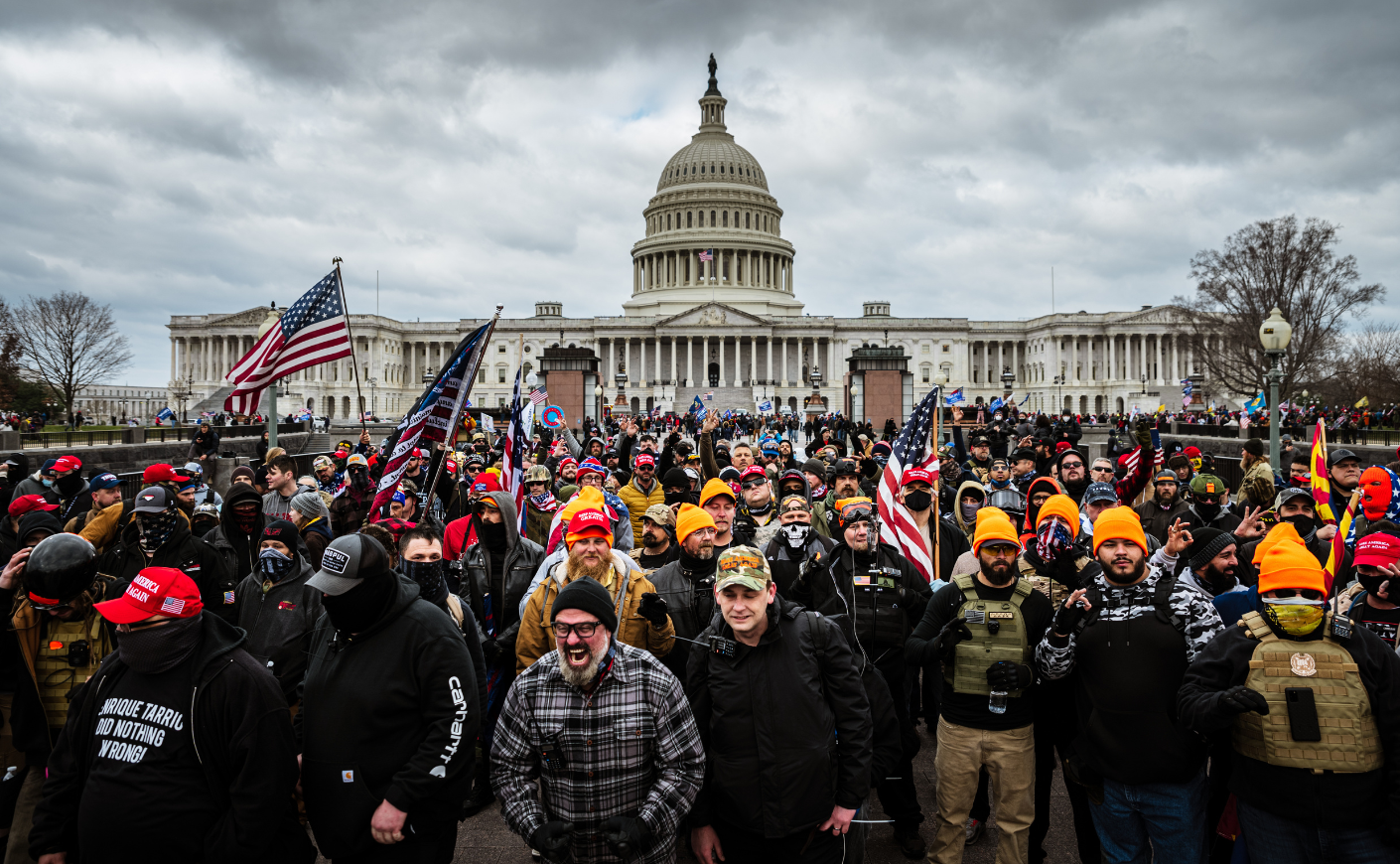Some Supreme Court justices appear skeptical.
The Supreme Court is currently grappling with the scope of a federal law that could have far-reaching implications for former President Donald Trump and more than 350 people who stormed the U.S. Capitol on Jan. 6, 2021.
The question at the center of the legal battle known as Fischer v. U.S. is whether the Justice Department can apply an obstruction statute to prosecute Trump and his supporters for their disruption of an official proceeding — namely, Congress’s certification of President Joe Biden’s 2020 election victory.
Joseph Fischer, who’s accused of being among the mob who ransacked the Capitol on Jan. 6, certainly doesn’t think so. On Tuesday, SCOTUS heard an appeal from his lawyer, who argued that the obstruction law in question was created to more narrowly address acts that affect the “integrity or availability of evidence,” and therefore it doesn’t apply to him — or others, for that matter.
And speaking of how the court views the legality of large-scale demonstrations, these oral arguments come just a day after the justices declined to hear an appeal from a Black Lives Matter organizer, effectively leaving in place a ruling that allows organizers to be held liable for violence caused by anyone who shows up to a mass protest. While this case will return to the lower courts for further review, it could potentially threaten the freedom to protest in Texas, Louisiana, and Mississippi.
As the obstruction case plays out, here’s a breakdown of the law it centers on, what the justices have said, and how the impending decision could impact Trump’s criminal cases.
What is Fischer v. U.S. about?
Fischer is challenging a law that’s known as Section 1512(c)(2) — catchy, right? Basically, this makes it a crime to “corruptly” obstruct or impede an official proceeding, and violations carry a maximum penalty of 20 years in prison. The charge itself is decades old — it was first enacted in 2002 after the Enron financial scandal, in which top executives at the energy company were imprisoned for fraud after the company went bankrupt.
But Fischer’s defense attorneys argue that the statute was written to address evidence tampering and was never intended to apply to events like the Jan. 6 insurrection. The DOJ, on the other hand, contends that the obstruction provision was designed as a “classic catch-all” to cover all acts that obstruct an official proceeding.
Ultimately, the judges will make the final determination, and whatever the decide has the potential to upend convictions and sentences of those who have gone to trial or pleaded guilty for their actions surrounding Jan. 6.
Where does the Supreme Court stand?
The Supreme Court appeared deeply skeptical of the Justice Department’s interpretation of the statute in question.
When U.S. Solicitor General Elizabeth B. Prelogar defended prosecutors’ use of the statute, Justices Samuel Alito and Neil Gorsuch, among others, seemed concerned that government officials were applying the law too broadly, which could potentially lead to weaponizing it against political protests.
“What happened on Jan. 6 was very, very serious,” Alito said after asking whether a protester who disrupts a Supreme Court argument could be charged with violating the obstruction law. “But we need to find out what are the outer reaches of this statute under your interpretation.”
Chief Justice John Roberts jumped in to question whether the DOJ has applied this obstruction statute in previous situations that didn’t involve specific documents. Meanwhile, Justice Brett Kavanaugh asked why Fischer’s other six charges related to Jan. 6 — including assaulting a police officer, disorderly conduct in the Capitol, and obstruction of a congressional proceeding — aren’t “good enough.” In response to Kavanaugh, Prelogar said that Fischer had expressed an intent to storm the Capitol and use violence if necessary to disrupt the vote. “[Fischer] said, ‘They can’t vote if they can’t breathe,’” Prelogar argued, referring to his alleged texts before the Capitol attack.
Justice Sonia Sotomayor didn’t share the skepticism of her conservative colleagues, arguing that the DOJ’s use of the obstruction law to cover a violent protest was justified by the unprecedented nature of the events of that day. “We’ve never had a situation before where there’s been a situation like this with people attempting to stop a proceeding violently. So, I’m not sure what the lack of history proves,” she said.
How could this decision impact Trump (and others)?
Trump wasn’t mentioned during Tuesday’s arguments, but the Supreme Court’s decision could have a major impact on his federal election interference case. If the court sides with Fischer, the former president could try to have his own charges related to obstruction of an official proceeding dismissed.
But for now, Trump’s case is on pause (and has been for months) as he seeks to have all four charges tossed out on the grounds he is protected by presidential immunity, which the Supreme Court will weigh in on next week. The special counsel already told the Supreme Court in a filing in the immunity case that regardless of how it rules, the charges against Trump still hold.
Besides Trump, the obstruction case could also have repercussions for hundreds of Jan. 6 defendants who have already been convicted of the offense or pleaded guilty. If the justices decide that the prosecutor’s reading of the measure was wrong, it could prompt bids for new trials or even lighter sentences.
A decision is expected to come down in June or July, so stay tuned for what could be an especially consequential ruling.








